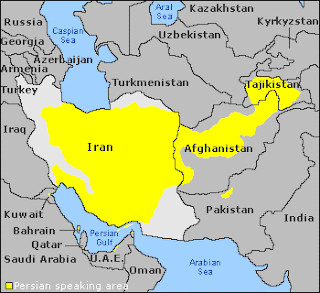Turkey’s long-running battle with Kurdish separatists is intensifying, again
SHOULD the Turks and Kurds live together? The answer from many of Turkey’s restive Kurds has long been no. A vicious separatist campaign launched by rebels of the outlawed Kurdistan Workers Party (PKK) has been raging since 1984. In recent months the PKK has stepped up its attacks, killing dozens of Turkish soldiers in and beyond the predominantly Kurdish south-east. Most recently, on July 20th, a Kurdish raid near the town of Cukurca killed six Turkish troops and injured at least 15.
But now a growing number of Turks are questioning the merits of cohabiting with the country’s estimated 14m Kurds. Never mind that Istanbul is the world’s largest Kurdish city, or that few of the provinces claimed by the Kurds are ethnically homogenous. In television debates and across the blogosphere support for the idea that the Kurds should go their own way is growing. Onur Sahin, who heads the Chamber of Agriculture in the Black Sea province of Ordu, says his fellow producers no longer want seasonal migrant Kurds to harvest their hazelnut crops.
Meanwhile, the military campaign against the PKK is intensifying. The mildly Islamist Justice and Development (AK) party, which has governed Turkey since 2002, plans to deploy a new professional army along the border with Iraq, where the PKK has havens. Some fear a return to the excesses of the 1990s, when over 3,000 Kurdish villages were forcibly evacuated and thousands of Kurds were imprisoned, murdered or disappeared.
Over the border, Turkish air raids on the PKK’s mountain bases in northern Iraq are increasing. America is helping by providing intelligence and broadening the air corridor used by Turkish fighter jets. Yet the Americans are worried by Turkey’s increasingly strident calls for the Iraqi Kurds to hand over some 200 rebels, including their own leaders. The last thing the Americans want to see, as they pull out of Iraq, is a war between Turkey and Iraqi Kurds.
All of this is a far cry from last year when AK heralded its so-called Kurdish “opening”. It made peace with the Iraqi Kurds and opened a consulate in Erbil, their capital. At home, a set of political and cultural reforms was meant to coax the PKK into laying down its arms, in the wake of a unilateral PKK ceasefire that was declared in April but that never took full effect. But the opening ground to a halt following the return last October of 34 PKK fighters to Turkey from Iraq. More were meant to follow. But the group prompted a public outcry by touring the south-east in guerrilla outfits, declaring victory. In response the government stepped up its arrests of members of the pro-Kurdish Peace and Democracy Party (BDP), accusing them of PKK membership. Half of the returnees have been put on trial for refusing to repent; ten are in prison. Last month the PKK hit back by calling off its truce.
Some voices plead for a return to peace. A group of Turkish intellectuals has petitioned the government to change a controversial article of the constitution that deems all Turkish citizens to be Turks. One AK mayor has suggested that Turkish men take Kurdish women as second wives. Others say that AK must talk to the PKK’s imprisoned leader, Abdullah Ocalan. Despite 11 years of solitary confinement in an island prison off Istanbul, Mr Ocalan retains the loyalty of his fighters and the affection of millions of Kurds.
In fact, secret talks with Mr Ocalan, supposedly conducted by security and intelligence operatives, have reportedly been going on for some time. Murat Karayilan, the PKK’s commander in northern Iraq, says his group wants to talk to politicians, not spooks, and this week proposed a bilateral ceasefire. But as next July’s parliamentary elections draw nearer, Turkey’s prime minister, Recep Tayyip Erdogan, is unlikely to risk nationalist ire by openly talking to a group deemed by Turkey and its Western allies to be terrorists. On the other hand, as Mr Erdogan knows, abandoning reform in favour of war will only strengthen the hand of his opponents within the army. He is, as an old Turkish saying goes, holding a stick with shit at both ends.
Source - www.economist.com




